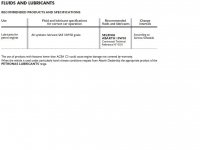If your Abarth 500 is the standard model and is left with the 'standard' boost could you not use 5w40 in the right spec. IMHO this could be a good choice for 'winter' use. What does it say in the A500 handbook ?
It only specifies 10w50 in the manual. I think that the 5w40 oil was stated in the past for the standard A500 and the 10w50 for the SS. My manual only states 10w50 for both versions.


